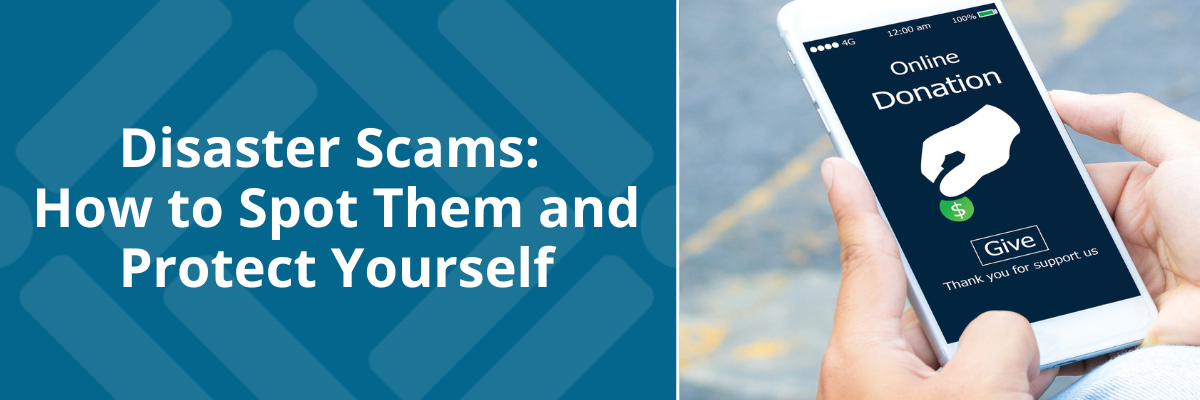Don’t get caught in a paper check scam! Here’s some info, and how you can stay safe.
Disaster Scams: How to Spot Them and Protect Yourself

Disasters can bring out the best in people. Unfortunately, they also attract scammers. Here’s what you need to know about disaster scams and how to avoid falling victim.
What are disaster scams?
Disaster scams take many forms, including:
- Charities or fundraisers. Fraudsters set up fake organizations to solicit donations and then pocket any funds they get.
- Contractors. They offer cleanup or repair services to victims, but disappear after getting paid.
- Government officials. Fraudsters impersonate FEMA, the Red Cross or other relief organizations to request personal information or fees for processing fake assistance applications.
- Insurance agents. Fraudsters claim they can expedite insurance claims in exchange for payment.
In each of these scams, the fraudsters urge victims to act immediately. They’ll reach out by phone, email or just show up at the door unannounced, offering help and demanding payment and/or personal information. They’ll generally ask for upfront payment using wire transfer, gift cards, or cryptocurrency, which is difficult or impossible to recover once the funds are lost.
How to spot disaster scams
Watch out for these red flags that can alert you to a disaster scam:
- Unlisted charities. Before donating, research the organization on websites like Charity Navigator or Guidestar.
- Sketchy details. Be cautious of organizations that refuse to provide details about their mission, finances, or contact info.
- Lack of verifiable credentials. If someone claims to be a contractor or government worker, ask for ID and confirm their legitimacy before sharing information or money.
- Unsecure URLs. To make sure you’re on a legitimate website, look for the secure “https” in the URL and check for typos in the web address.
Protect yourself
Here’s how to stay safe from disaster scams:
- Keep up with news about the disaster to avoid falling for false claims.
- Contact agencies, like FEMA, directly through their verified websites or phone numbers.
- Before hiring a contractor, check licenses and never pay upfront for the full cost of repairs.
- Never share personal, financial or insurance information unless you’re certain of the recipient’s legitimacy.
If you’ve been targeted
If you’re the target of a disaster scam, there are steps you can take to mitigate the damage. First, the scam should be reported by contacting the Federal Trade Commission (FTC). Next, dispute any unauthorized charges on your credit cards. Finally, if you’ve also shared checking account details, call us so we can block additional transactions or reverse any charges.
Follow these tips to stay safe!



